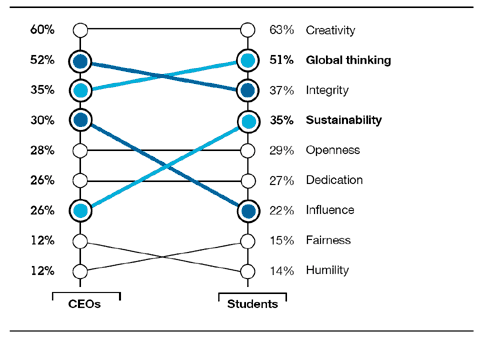 My friend Summer Rayne Oakes at Source4Style put me on to an article in The Guardian by Ilaria Pasquinelli, on how small firms drive innovation. If the fashion industry is to survive, she says, it must team up with the small players where innovation takes place, thanks to the visionaries who drive those firms.
My friend Summer Rayne Oakes at Source4Style put me on to an article in The Guardian by Ilaria Pasquinelli, on how small firms drive innovation. If the fashion industry is to survive, she says, it must team up with the small players where innovation takes place, thanks to the visionaries who drive those firms.
She’s right, of course:
The small scale allows companies to be flexible, this is crucial in order to adapt to very diverse market conditions and economic turbulence.
In addition, small companies have no other option than to take risk in order to leave their mark, notably if they are start-ups. Small companies habitually lack financial resources though, and it is precisely here where larger organisations can decide to take on a calculated risk and allocate some of their funds, in order to outsource processes, products or development.
Therefore, it’s important not just to foster the growth of small creative businesses, but entire networks where they can come into contact with the larger ones. And the successful cities of the 21st century are those that can do that through clusters, clever place branding, and a real understanding of what it takes to compete at a global level.
We’re still largely hampered by politicians who cannot see past their own national boundaries or, at best, look at competing solely with a neighbouring nation, when that has not been the reality for at least 20 years.
There are exceptions where companies themselves have done the environmental scanning and found organizations to collaborate with—such as the ones Ilaria mentions in her article. But there’s no practical reason other than a lack of vision that they are the exception rather than the rule.
She gives three examples: Tesco collaborated with upcycle fashion brand, From Somewhere, to use textile waste, which has seen three collections produced; Levi’s is refitting vintage 501s with Reformation, so customers know their old jeans aren’t going to a landfill; and Worn Again, partnering with Virgin, Royal Mail and Eurostar, is making bags out of the likes of postal workers’ decommissioned storm jackets.
The innovations, of course, need not be in fashion or even sustainability. Look back through the last generation of innovations and many have come from smaller companies that needed the right leg up. Google, too, was started in someone’s home.
I’ve been pushing the “think global” aspect of my own businesses, as well as encouraging others, for a lot of the 25 years Jack Yan & Associates has existed. It’s why most of our ventures have looked outside our own borders for sales. When we went on to bulletin boards for the first time at the turn of the 1990s, it was like a godsend for a kid who marvelled at the telex machine at my Dad’s work. It’s second-nature for anyone my age and younger to see this planet as one that exists independently of national borders, whether for trade or for personal friendships.
As this generation makes its mark, I am getting more excited—though I remain cautious of institutions that keep our thinking so locally focused because that is simply what the establishment is used to. Yet it’s having the courage to take the leap forward that will make this country great: small nations, like small companies, should be, and can be, hotbeds of innovation.
Create those clusters, and create some wonderful champions—and the sort of independent thinking Kiwis are known for can go far beyond our borders.





Couple of thoughts, Jack.
One was Johanna Blakley’s TED talk “Lessons from fashion’s free culture”. She points out that there is very little copyright structure over fashion, in comparison to copyright for film, music, and software. You’re probably well aware which has been declining, and which has still been doing very well of late.
The second, by contrast, is where I think local focus is still an important one: agriculture. I know our gas/petrol prices aren’t terribly comparable to the rest of the world save maybe Hawaii, being about 4US$/U.S. gallon in most of the contiguous 48 states. But those fuel costs impact food prices, especially those that must be shipped from outside the area.
My family is poor enough that we have taken very serious preparations. We’ve taken up gardening and a home orchard (now that we’re finally in a house), and are giving thought to raising a few chickens and maybe even keeping a beehive. We go back to friends and acquaintances (many of them churchmates) to glean and help at their family farms, and do home canning.
My tastes are probably the most exotic in my little family but although I love so much of the world’s food, we will have to think more and more to our own backyard, to survive.